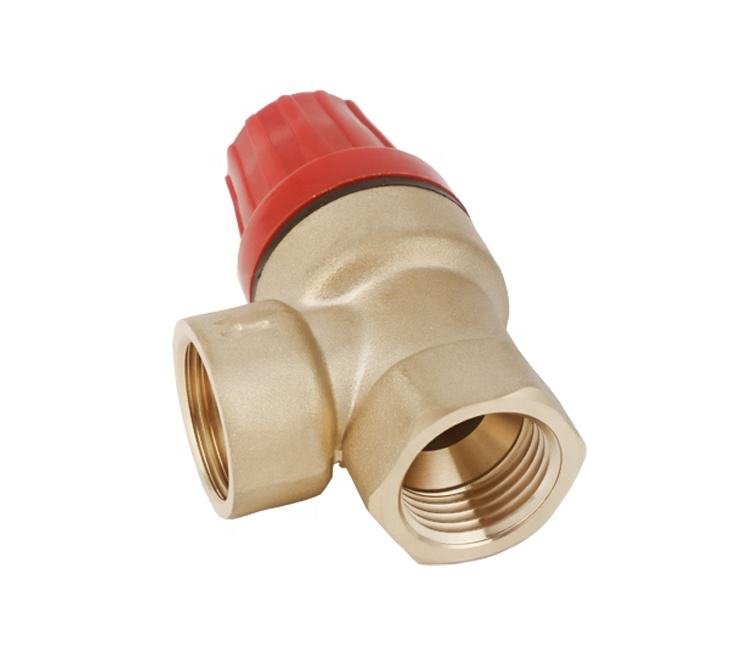Imagine your boiler system failing at the worst possible moment, leaking water or making strange noises that keep you up at night. A faulty boiler pressure relief valve can cause costly damage, from ruined equipment to unsafe pressure buildup. Don’t worry—knowing the symptoms of a bad boiler relief valve can help you act fast and avoid disaster. Read on to learn how to spot trouble and keep your system running smoothly.
A bad pressure relief valve shows symptoms like constant leaking, no water discharge, unusual noises, or pressure spikes. You might notice water pooling around the valve, corrosion, or irregular boiler performance. These signs often point to a faulty boiler pressure valve, needing immediate inspection or boiler relief valve replacement to prevent system failure.
Curious about what these symptoms mean and how to fix them? Let’s dive deeper into the world of boiler pressure relief valves to help you protect your system and avoid costly repairs.

Can Damaged Valves Be Repaired?
When you spot a problem with your boiler pressure relief valve, the first question is whether it can be fixed or if a full boiler relief valve replacement is necessary. The good news? Many damaged valves can be repaired, depending on the issue. For example, if your boiler relief valve 30 psi or 50 psi is leaking due to debris or sediment buildup, a simple cleaning might do the trick. Flushing the valve can clear blockages, restoring normal function. Similarly, a stuck valve might just need lubrication or minor adjustments to work properly again.
However, some damage calls for more than a quick fix. If the valve’s internal components, like the spring or diaphragm, are worn out, repairs might not last long. Corrosion or cracks in the boiler pressure relief valve discharge pipe are also red flags, as they can compromise safety. In these cases, replacing the valve is often the smarter choice to ensure stable export pressure and sufficient flow rate, especially for high-demand systems in large companies or construction projects.
Before deciding, have a professional inspect the valve’s condition. They’ll check the boiler pressure relief valve location to ensure it’s properly installed and assess whether the damage affects performance. For businesses like plumbing wholesalers or DIY building materials chains, stocking high-quality valves from trusted manufacturers like IVALVECRAFT ensures quick replacements when repairs aren’t enough. Investing in durable boiler pressure valves reduces downtime and keeps your operations safe and efficient.
What Is the Life Expectancy of a Pressure Relief Valve?
The life expectancy of a boiler pressure relief valve varies, but most last between 3 to 5 years with proper maintenance. Factors like water quality, usage frequency, and system pressure play a big role. For instance, a boiler relief valve 30 psi in a high-use industrial setting might wear out faster than one in a smaller setup. Hard water or debris can cause corrosion, shortening the valve’s lifespan, while regular maintenance can extend it.
Valves in harsh environments, like those in construction projects or large-scale plumbing systems, face more stress. If your boiler pressure relief valve discharge pipe is exposed to extreme temperatures or poor water conditions, expect more frequent replacements. Regular inspections can catch issues early, like leaks or pressure irregularities, which are common in boiler pressure reducing valve troubleshooting. For businesses like building materials wholesalers or procurement officers, understanding this timeline helps with inventory planning.
To maximize lifespan, follow a maintenance schedule. Flush the valve periodically to prevent sediment buildup, and test it to ensure it opens and closes properly. If you notice symptoms like inconsistent pressure or water pooling near the boiler pressure relief valve location, it might be nearing the end of its life. Choosing high-quality valves, like those from IVALVECRAFT, ensures durability and reliable performance, reducing the need for frequent replacements and keeping your system safe.
Summary
A bad boiler pressure relief valve can disrupt your operations, but spotting symptoms like leaks, strange noises, or pressure issues early can save you from costly repairs. While some valves can be repaired with cleaning or minor fixes, others require boiler relief valve replacement to maintain safety and efficiency. The lifespan of a valve typically ranges from 3 to 5 years, but maintenance and quality matter. For businesses like plumbing wholesalers or construction procurement, partnering with a reliable manufacturer ensures access to durable boiler pressure valves.
Choose IVALVECRAFT, choose reliable partner, enjoy the high quality and best service.


